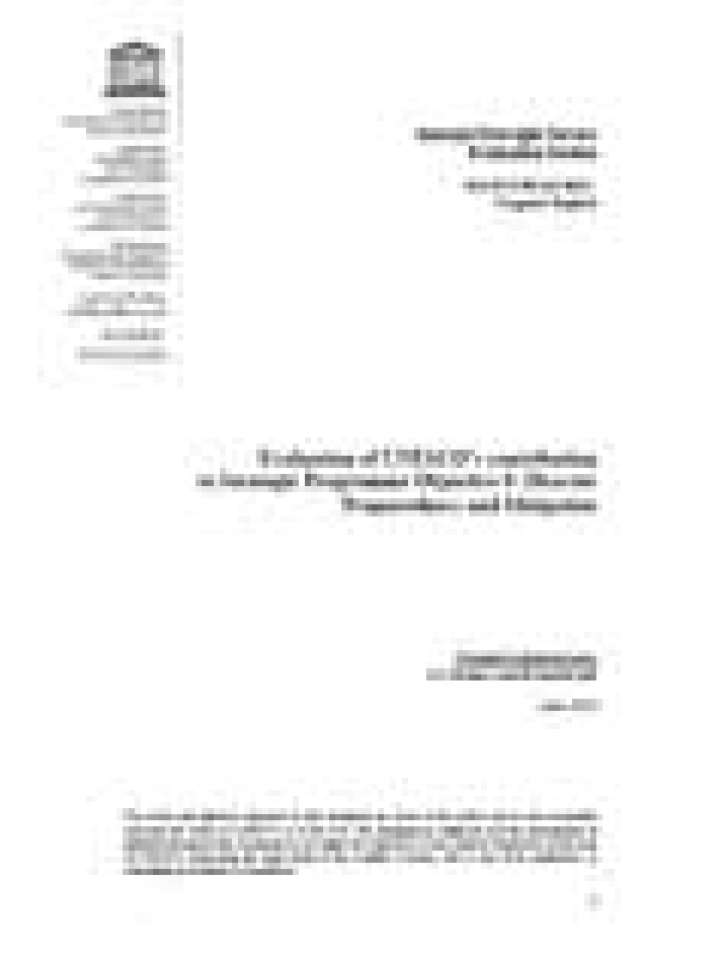Evaluation of UNESCO's contribution to Strategic Programme Objective 5: disaster preparedness and mitigation
This evaluation assesses progress towards achieving UNESCO’s work in disaster risk reduction and examines how progress might be enhanced through improving programme policy, design and delivery for the following outcomes: (i) tsunami early-warning systems established and operational in Africa, the South Pacific, the Mediterranean Sea, the North-East Atlantic and the Caribbean; (ii) vulnerable and weakened communities prepared to cope with disasters through access and use of information and knowledge and to mitigate their impact; (iii) governments advised and assisted in the design of policies mitigating disaster risks and impact; and (iv) contributions made to the development of national strategies for natural and human-induced disaster prevention and vulnerability reduction and included in United Nations system common country programming efforts.
It aims to assist UNESCO’s Governing Bodies, Senior Management and the Programme Sectors by making evidence-based recommendations, covering the following issues: level of funding and staffing, geographical spread of programmes and activities, programme delivery mechanisms or modalities, building capacity, changes to internal structures and organizational policies/procedures, strengthened relationships as part of a network of UN agencies, inter-governmental groups, and non-governmental or civil society organizations that are teamed together as part of the International Strategy for Disaster Reduction (ISDR), comparative advantages, evolving areas of strategic importance, and the two global programme priorities of Africa and gender equality.
Explore further
